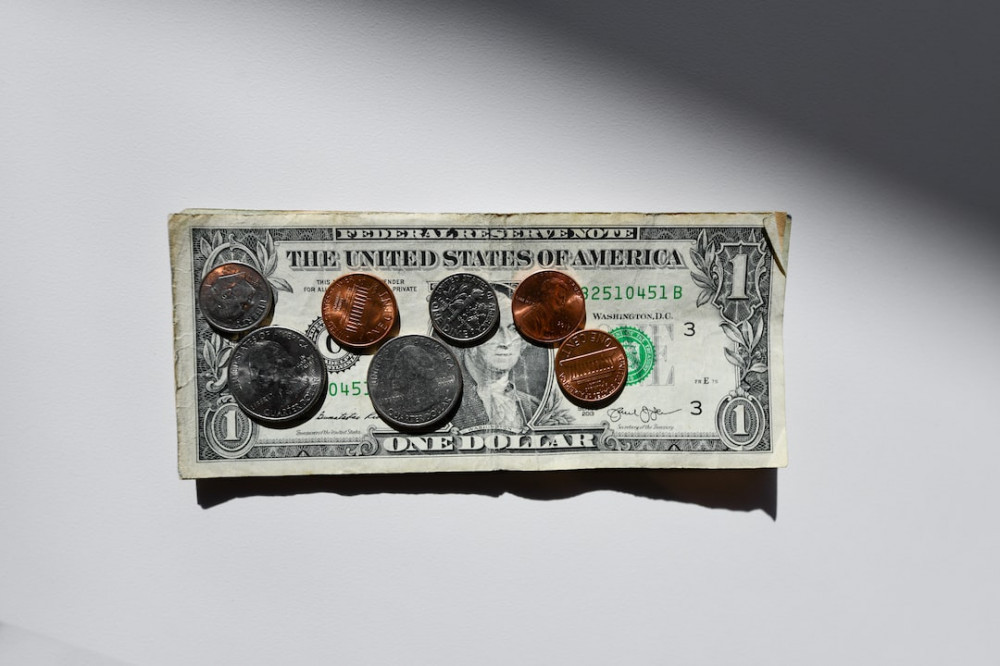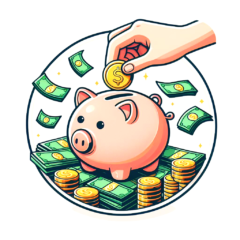
Why is it that the subject of money often carries a weight that every one of us feels, but struggles to manage? The idea of financial wellness often seems like a distant luxury, especially when you’re navigating rough waters. Yet, this doesn’t negate its importance. Even with limited means, the notion of saving on a tight budget isn’t just wishful thinking – it’s absolutely possible.
Here’s the thing: budgeting with a smaller income is undeniably tricky. It often feels like you’re trying to squeeze water out of a stone. The key lies in recognizing that each dollar holds the potential for growth, no matter how few are in your wallet. Embracing thoughtful spending and saving habits can transform your financial picture, even if that transformation seems slow at first.
So what’s the first step? It’s flipping your perspective on saving. Imagine a fortress, not of stone, but of determination. I call it the ‘saving sanctuary’ – a mindset where you shield your future from unexpected events by putting away even the smallest amounts for a rainy day. And remember, small streams can lead to vast oceans over time.
Strategic Budgeting: Maximize Every Cent
You might often hear people stress the importance of crafting a budget, but when you’re already stretching every dollar, the standard advice can fall flat. I’ve been there, and I’ve learned that sometimes it takes more than just general guidance to manage your finances effectively. Personalization is key. This section will explore how to develop a budget plan tailored specifically to you and your unique financial situation.
First up, let’s talk about the brass tacks of a tailor-made budget plan. Begin by documenting all your income sources and monthly expenses. And I mean every little thing. Those small daily coffee-shop visits? They add up. Once you lay everything out, it becomes much easier to see where you can reasonably cut corners.
So, you’ve tracked your spending. What’s next? Identifying savings opportunities, of course. It’s not always about making huge cuts; even minor tweaks can boost your savings more than you might expect. For instance, consider adjusting your thermostat a couple of degrees or switching to a more cost-effective phone plan.
It’s also essential to differentiate between wants and needs. A need is something that’s non-negotiable for survival and daily functioning, like food and shelter. Wants, on the other hand, are nice to have but not exactly essential – I’m looking at you, latest smartphone. Aligning your spending with your needs will lay the foundation for a robust budget.
Thankfully, budgeting doesn’t have to be an analog affair – there are plenty of apps and tools out there to simplify the process. Many are free and offer valuable insights into your spending patterns, making it easier to adjust on the fly and stay disciplined with your budget goals.
Smart Shopping Habits to Stabilize Your Savings
I’ve found that one of the most straightforward ways to help your budget is to tweak your shopping habits. It might not seem like clipping a coupon here or choosing a no-name brand there would add up, but trust me, it does. Smart shopping isn’t about depriving yourself; it’s about making choices that stretch your dollars further.
Let’s start with coupons and cashback offers. Ever stood behind someone in the checkout line watching them hand over a stack of coupons and thought it seemed like a hassle? It can actually be worth the time. These days, you don’t need to spend hours cutting out paper coupons. Digital coupons and cashback apps can slash your grocery bill with a few taps on your phone.
Speaking of grocery bills, have you tried bulk buying? This isn’t about stocking up for the end of days; it’s about buying larger quantities of items you use regularly when they’re on sale. Pair this with meal planning and you’ll cut down on wasted food and last-minute takeouts.
And when it comes to brand names, we often pay more for the label than the product. Generic products often have the same ingredients at a fraction of the cost. My advice: test out generics for yourself. Start with non-critical items to see if you notice any difference.
Bear in mind these small adjustments during your regular shopping trips. It’s surprising how much you can keep in your pocket when you’re a little more deliberate about where it goes. Next, you’ll want to know where that saved money can go to work for you – generating even more. That’s where we get into side hustles and passive income, making your tight budget stretch even further.
Fostering Sustainable Financial Habits
I want to wrap things up with a focus on sustainability. Saving money isn’t about a one-time windfall or quick fixes. It’s about establishing practices that will support you long-term.
When you consider side hustles and passive income streams, think about activities that fit into your existing schedule and lifestyle. The goal isn’t to overwhelm your life with more work, but to complement it with smart work that helps you earn extra without excessive stress.
Seek out opportunities that align with your skills and passions. This way, the extra effort feels less daunting and more like a natural extension of your daily life. It could be anything; perhaps selling handmade crafts, doing freelance graphic design, offering tutoring services online, or investing in dividend-paying stocks.
Additionally, take advantage of learning opportunities. There are countless free resources online that can teach you how to start a side business, invest wisely, or develop a skill that could lead to additional income. Knowledge is a powerful tool in your savings strategy.
Remember to stick with your budgeting and smart shopping habits. As your side hustle grows, so might the temptation to increase spending. It’s important to maintain discipline and keep funneling a portion of your extra earnings into your savings.
Commit to regular financial check-ins. Make adjustments to your budget and savings plans as necessary. Life is unpredictable, and your financial strategy should be flexible enough to accommodate those unexpected twists and turns.
As you continue to apply these principles, you’ll not only strengthen your financial foundation but also build confidence in your ability to manage and grow your money, no matter what budget you’re working with.

Hi, who doesn’t like to save money, whether we’re on a tight budget or not? I know it’s a hot button for me as it just so happens I’ve spent much of my life living on a tight budget. As you pointed out, being able to live well on a tight budget is very possible. The operative word is budget. Knowing how to budget and sticking to it is the key. I had to learn the hard way. Today, although I’m not rich by any standards, I don’t have to live like I once did. On the other hand, I still literally count/account for every cent that comes in and that goes out. It was a survival skill. Now, I find it’s just a better way to live. Thanks for all your great ideas.
Bob
Yes, I can totally relate. I’ve always been on a budget and suspect I always will be, no matter how well I’m doing. Unfortunately, many people learn this late in life. And if they’ve never had to do it, they may not even realize all the different ways they’ve been throwing money down the drain. Thanks for stopping by!
Mark